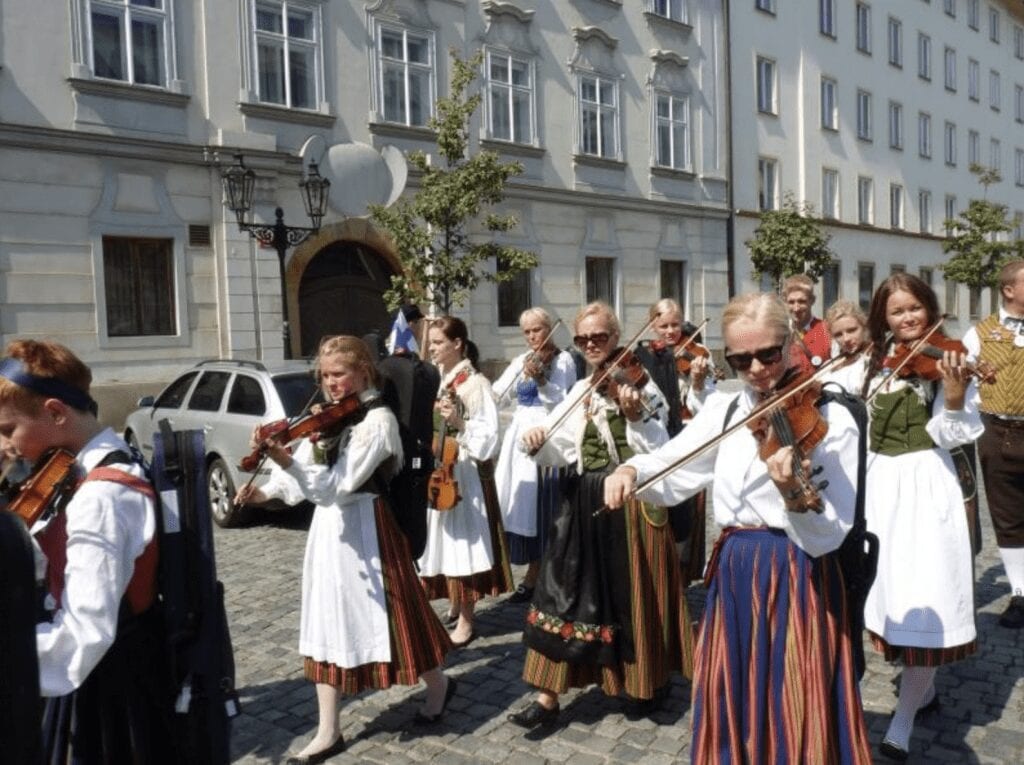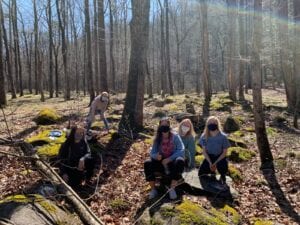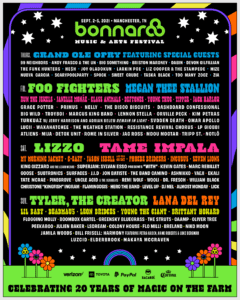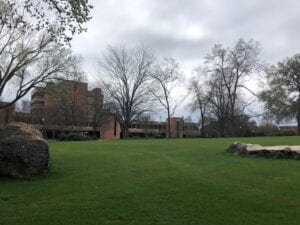Folklore Days Festival brings old traditions to Prague


Seeing the colorful costumes and hearing the traditional music playing in front of Prague’s Rudolfinum Concert Hall indicates the celebration of a time long past. The Folklore Days Festival is a Central European tradition where people come from different countries in and around Europe, dressed in traditional attire, to celebrate classic forms of dance from their perspective countries.
The event was started 14 years ago by Stanislav Terlica and a friend as a means of bringing back old traditions he feared could be long lost. In an interview with Radio Praha, Terlica asserts his views:
“I think these festivals are very important in the time of globalization, when differences between countries and continents disappear. We should keep our traditions and the culture that our ancestors used to take care of, because it is our national heritage,” Terlica said.
Prague Festival’s website notes the festival’s importance and how big it has become in the region:
“It is a great pleasure for us to invite you to Prague, capital of Czech Republic, to the 15th International Meeting of Folklore Ensembles “Prague Folklore Days,” the biggest folk dance event in central Europe.”
Additionally, on Prague Festival’s website it is noted that many other groups have tried to start their own festival groups in the past, piggybacking off of Terlica’s idea. It apparently has happened enough that a warning is noted on the site:
“Prague Folklore Days is the only Prague folk dance festival with all necessary permissions from the local authorities in July with official auspices of [the] City of Prague held on open air stages and fulfilling all legal requirements. If you join a festival organized by a Serbian or Macedonian agency, beware that they have already betrayed numerous groups in the past.”
If nothing else, this shows how much the festival has caught on. It has enough of a following that people have been trying to take the idea.
The spectrum of countries participating varies. Additionally, a folk dance from Switzerland is followed up with a traditional group from Beijing, China made up of many young dancers. The presenter for the event made every announcement in multiple languages adding to the multicultural feel of the occasion.
“We wanted to bring these other cultures to life in Prague, which [these other cultures] tend to consist of very modern stuff and very classical stuff, but these traditional things are missing here,” Terlica said.
In founding the Folklore Days Festival, Terlica hopes to revive interest in cultures from the past and bring the traditions of other countries to the Czech Republic. He feels as if a lot of tradition has been lost in the Czech Republic.
Another aspect of note is that a group from Israel featured disabled people dancing in the group. This company actually performed off of the stage and right in front of Rudolfinum Concert Hall.
What started as a simple, little event blossomed into something far more extensive over the years. Terlica expressed pleasure over watching his creation evolve into something much bigger:
“We started and it grew and grew, and now every year we have over 50-60 groups from many, many countries,” Terlica said.



